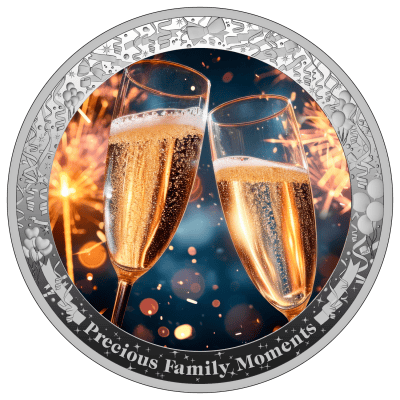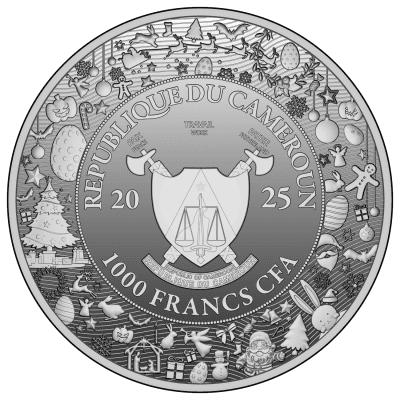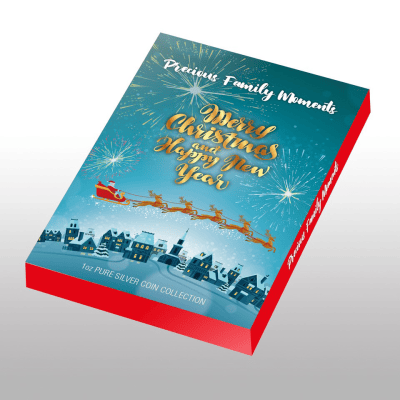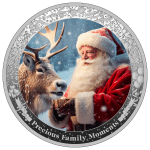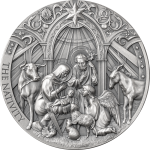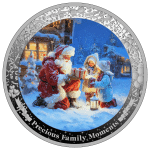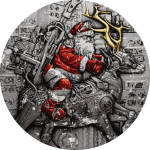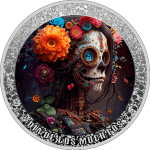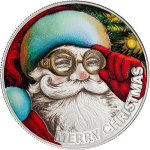Cameroon – 2025 – 1000 Francs – New Year’s Eve Precious Family Moments series 1oz silver
€ 169.00
In Stock / On Backorder
Click here to see all coins in the PopCoins® – Your key to silver™ series.
| Issuing Country | Cameroon |
| Year of Issue | 2025 |
| Face Value | 1000 Francs |
| Metal | Silver |
| Fineness (purity) | 999/1000 |
| Weight | 1 oz |
| Diameter | 40 mm |
| Quality | PROOF |
| Mintage | 99 pcs |
| Scope of Delivery | Box Certificate |
| Special features | – |
Description
Imagine receiving the ‘New Year’s Eve’ coin as a heartfelt gift, symbolizing new beginnings and cherished family traditions. This exquisite piece in the “Precious Family Moments” collection beautifully showcases a festive celebration with fireworks lighting up the night sky and a family gathering to welcome the new year, all depicted with stunning detail and artistry. Crafted as a legal tender 1oz pure silver coin, it is presented in a beautiful blister pack and features a low mintage, making it a treasured keepsake for enthusiasts and collectors alike. Embrace the spirit of renewal and joy with this limited-edition coin, available now at select modern coin dealers. Secure your piece of treasured memories today!
Coin description
In the middle of the reverse is a high resolution printed “Two Glasses of Champagne with Fireworks in the background” image. Around the image is a circle of elements which appears on each of the coins. At the bottom the series name “PRECIOUS FAMILY MOMENTS” is written.
The obverse side of the coin depicts the unique coat of arms for Cameroon. Surrounding the coat of arms there are various elements related to events celebrated with family. The coat of arms has the inscriptions: “REPUBLIQUE DU CAMEROUN” (country of issue), “2025” (the year of issue) and “1000 FRANCS CFA” (the face value).
Background information
New Year’s Eve has origins dating back thousands of years to ancient civilizations. The Babylonians celebrated the new year over 4,000 years ago with a festival called Akitu, marking the spring equinox and symbolizing renewal and rebirth. In 46 B.C., Julius Caesar introduced the Julian calendar, shifting the new year from March to January 1st to honor Janus, the Roman god of beginnings and transitions, who was depicted with two faces looking to the past and the future.
Throughout history, people have marked New Year’s Eve with feasts, gatherings, and rituals reflecting on the past year and anticipating the future. The tradition of making New Year’s resolutions stems from ancient customs where individuals made promises to earn favor in the coming year. Despite variations across cultures and time periods, New Year’s Eve remains a universal time of reflection, renewal, and hope for what lies ahead.

